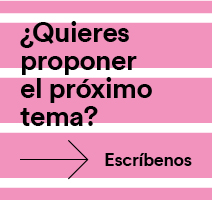Give your opinion
With good handwriting
"BUT WHAT A PAIN IN THE ASS :( :( :( :( ".
Isn't that what you say in your gut when you're being lectured again about the reasonable use of chat rooms/internet/video games/etc.? What do we care: progress is exciting. We all love Terminator, Back to the Future, Black Mirror, Rick and Morty (although not everyone loves the last two, of course). The future and the past, each with its own magic, have always had a marvellous touch. Especially today, in the overabundance and/or lack of written communication.
It is becoming faster, more useful, more effective, more efficient, freer, more oral: the same for everyone. Don't the messages look more and more like the countless pictures of the endless Chinese in the endless museums?
Nowadays, it seems that mass production is more important to us than a personalised handmade product (despite what the marketing people say, or the existence of memes). But what we do know is that the senders of the old letters have left their good handwriting in history. Between their good lines, history itself (not always good) reads full of ordinary lives.
|
|
"The letters of yesteryear
by GABRIEL INSAUSTI
Some years ago a relative of mine, already in the last stretch of his life, collected all the letters that had been written in his house in the 1930s, 1940s and 1950s, sorted, scanned and bound them and gave the Issue to his sister. Since then she often sits with that book in her lap, opens it and reads. "It's like remembering the family history, day by day," she says. And in her eyes peeks a melancholy look.
The letters would be the autobiographical and syncopated account of those who do not write.
Letters have become just that: a relic of the past, declared obsolete thanks to the internet, email, Facebook and Whatsapp. And yet, for a long time they were decisive for the life of Western societies. Religious orders, Renaissance humanists, Jewish intellectuals of the 19th and 20th centuries, built veritable networks of ink and paper, in which the consciousness and culture of an entire community unfolded. For absent relatives, for prisoners, for soldiers fighting in a remote place, for emigrants, there was a space emancipated from space, in which communication was possible. And people lived at the rhythm imposed by the letters. One waited for the next letter.
The critic Philippe Lejeune, who specialises in writings of the self, such as autobiography and the diary, has recently studied this genre of epistolary letters, from the most eminent to the most anonymous: letters are the autobiographical and syncopated account of those who do not write. A way of keeping an ember alive. He has even analysed the epistolaries of correspondents who have kept that ember alive for fifty years without ever having physically seen each other! And, of course, beyond the common people, literacy and the improvement in transport led to the creation in the 18th century of a narrative sub-genre, the epistolary novel, which produced such eminent titles as Goethe's Werther or Les liaisons dangereuses de Laclos and which reached the 20th century, with examples such as Zweig's Letter from a stranger, Alice Walker's The Color Purple, or Delibes' Love Letters from a voluptuous sexagenarian.
False profiles and feigned personalities were already part of the world of writing and, in particular, of epistolary writing.
of writing and, in particular, of epistolary writing.
Obviously, new technologies have changed this status, they have placed us in another way of living space and time. Advantages? Countless, such as immediacy and speed. Disadvantages? Those derived from the loss of something as precious as the learning of slowness: the letter forced us to put things in order, to take our time and, of course, to give grammar its due and construct complete sentences and paragraphs. Differences? Not so many. Pedro Salinas said in the first essay of El defensor, "Defensa de la carta misiva y de la correspondencia epistolar", that the letter constituted "a way of understanding each other without hearing each other, of looking at each other without being present". And such a thing - suffice it to recall here Rostand's Cyrano, who seduced Roxanne by means of letters signed by Christian - is not very far from the unreality that Facebook, Twitter, email, etc. allow. Fake profiles and feigned personalities were already part of the world of writing and, singularly, of epistolary writing. The main difference would be in the confusion of the new scripts with orality... and in the deficient prose to which this speed often gives rise.
Like everyone else, for years I have only been sending letters to receipt for traffic fines and bank notifications. Only occasionally does it happen that a writer friend, addicted to pen and paper, sends me a book and encloses a letter between its pages. And I treasure it.
13/04/19 Published in EFE







